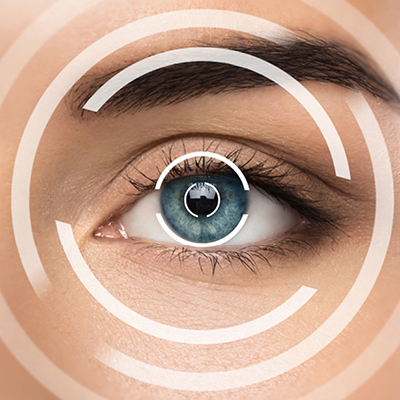Keep an eye out for these 7 everyday habits that are hurting your vision
Posted May 10, 2021 by Jennifer Bohl, M.D.

Vision is something many of us take for granted. We use our eyes to see our loved ones, read a great book or watch a movie, play video games with our children and every activity in between.
However, you may be surprised to see that many of the habits you practice every day could actually be putting your eyesight at risk and could lead to painful eye conditions or even vision loss.
Yes, some eye conditions are hereditary, but many are a result of poor eye care. Summa Health discusses 7 bad habits that could be hurting your eyes and how to break them to protect your vision for years to come.
Rubbing your eyes
Yes, rubbing your eyes too much is harmful to them. Rubbing puts unnecessary pressure on your eyes and can actually lead to scratched corneas. If you rub your eyes for an extended period of time, it could lead to serious eye conditions.
Not to mention, when you rub your eyes, you’re placing germs from your hands in your eyes, which can lead to infection, such as pink eye.
If your eyes are itchy, use a cold compress to relieve them. If you think there’s something in your eye causing irritation, try rinsing them with water or saline instead.
Too much screen time
The average American worker spends seven hours a day on a digital device, according to the American Optometric Association. It’s not just adults, either. Kids spend several hours on digital devices a day, too.
As a result, many people suffer from what’s referred to as digital eyestrain, causing headaches, blurred vision, dry eyes and eye irritation. In addition, if you spend too much time on the screen right before bedtime, it can make it difficult to fall asleep.
To help alleviate digital eyestrain, follow the 20-20-20 rule. Every 20 minutes, take a 20-second break to view something 20 feet away.
No sunglasses
Before stepping outside, you should always grab your sunglasses to protect your eyes from UV rays — just like you protect your skin from them. Also, make sure your shades offer 99 to 100% UV protection and never look directly at the sun.
If you’re going to be outside for long periods of time, wear sunglasses even if it’s cloudy. Over time, damage from UV rays can lead to serious eye conditions, such as cataracts and pterygium, which causes an abnormal growth over the whites of your eyes.
In addition, not wearing sunglasses increases your risk of cancer of the eyelids and the skin around your eyes, as well as the eye itself.
No eye protection
From mowing the lawn and home improvement projects to cleaning with chemicals to swimming, it’s important to protect your eyes from injury by wearing safety glasses.
Use common sense. If there’s a risk of something flying or splashing in your eyes, wear proper protection.
Poor diet
Just like your body, your eyes need vitamins and minerals to stay healthy. Foods rich in vitamins C and E, zinc and omega-3 fatty acids, such as leafy greens, seafood, nuts and, of course, fresh fruits and vegetables, protect your eyes and overall health.
In addition, it’s important to drink plenty of water each day. Just like your body needs hydration to keep systems working properly, so do your eyes. Dehydration can lead to dry, red, itchy eyes. So, be sure to drink at least 8 glasses of water each day to keep your eyes moist.
Smoking
Smoking has long been known to cause heart disease and lung cancer. But believe it or not, people who smoke also are hurting their eyes. Smoking can lead to macular degeneration, cataracts, glaucoma and several other eye diseases.
It’s never too late to quit smoking. Talk to your doctor about smoking cessation programs or nicotine replacement therapy to help you break the bad habit.
Skipping regular eye exams
The American Optometric Association recommends adults should have a comprehensive eye and vision exam at least every two years, depending on age and risk factors. Aging and chronic conditions, such as diabetes, high blood pressure or high cholesterol, can cause problems for your eyes and even lead to vision loss.
An eye checkup can reveal more than just vision problems. The doctor is checking inside your eye for issues with the retina, blood vessels and optic nerves to detect vision problems or eye diseases. The problem is many eye diseases don’t show signs until they are quite advanced and possibly irreversible.
The key to good eyesight is proper eye care. So be sure to develop a relationship with an ophthalmologist and have regular eye exams to keep your vision healthy for years to come.
To schedule an appointment with a Summa Health optometrist, click here.
About the Author
Vitality eNews Sign Up
Receive the Summa Health eNewsletter for the latest health tips, advice and updates.


